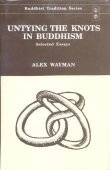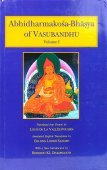Yogacara, Yogācāra, Yoga-acara, Yoga-cara: 14 definitions
Introduction:
Yogacara means something in Buddhism, Pali, Jainism, Prakrit, Hinduism, Sanskrit, Hindi. If you want to know the exact meaning, history, etymology or English translation of this term then check out the descriptions on this page. Add your comment or reference to a book if you want to contribute to this summary article.
Alternative spellings of this word include Yogachara.
In Buddhism
Mahayana (major branch of Buddhism)
Source: Wisdom Library: Maha Prajnaparamita SastraYogācāra (योगाचार) refers to “practicing the practices” and represents one of the ten Bodhisattva vyavasthānas, according to the Avataṃsaka in the chapter on the bodhisattva-daśavyavasthāna, as mentioned in the 2nd century Mahāprajñāpāramitāśāstra chapter 52. Yogācāra-vyavasthāna is also known as sieou hing. The Sanskrit names of these ten abodes are given by the Gaṇḍhavyūha.

Mahayana (महायान, mahāyāna) is a major branch of Buddhism focusing on the path of a Bodhisattva (spiritual aspirants/ enlightened beings). Extant literature is vast and primarely composed in the Sanskrit language. There are many sūtras of which some of the earliest are the various Prajñāpāramitā sūtras.
General definition (in Buddhism)
Source: archive.org: The Indian Buddhist Iconography (b)Yogācāra (योगाचार) refers to one of the schools of philosophy in Buddhism.—[...] Thus there were three Yānas in Buddhism about 300 A.D. which may approximately be taken as the time of Asaṅga. But against these three Yānas there were four schools of philosophy in Buddhism, namely, the Sarvāstivāda (Sautrāntika), the Vāhyārthabhaṅga (Vaibhāṣika), the Vijñānavāda (Yogācāra), and the Śūnyavāda (Madhyamaka). How these four systems of philosophy were distributed amongst the three Yānas is one of the vital questions of Buddhism.
According to the Tattvaratnāvalī of Advayavajra (12th century A. D.):—“three are the Yānas, Śrāvakayāna, Pratyekayāna and Mahāyāna. There are four theories; Vaibhāṣika, Sautrāntika, Yogācāra and Madhyamaka. Śrāvakayāna and Pratyekayāna are explained by the theories of the Vaibhāṣikas. Mahāyāna is of two kinds: Pāramitānaya and Mantranaya. Pāramitānaya is explained by the theories either of Sautrāntika, Yogācāra or Madhyamaka. Mantranaya is explained by the theories of Yogācāra and Madhyamaka only”.
Source: Buddhist Door: GlossarySee Dharmalaksana School.In Jainism
Jain philosophy
Source: archive.org: Anekanta Jaya Pataka of Haribhadra SuriYogācāra (योगाचार) refers to one of the four schools of Buddhism, as occurring in the Anekāntajayapatākā-prakaraṇa, a Śvetāmbara Jain philosophical work written by Haribhadra Sūri.—[Cf. Vol. I, P. 80, l 10]—Yogācāra (or Vijñānavāda) is the name of one of the four schools of Buddhism, the other three being (i) Sautrāntika, (ii) Vaibhāṣika (or Āryasamitīya or Sarvāstivāda) and (iii) Śūnyavāda or Mādhyamikavāda or Nairātmyavāda. Yogācāra is so named as its leaders practised yoga, for, according to this school, only those who by practising yoga attain the ten bhūmis of Boddhisattva, acquire bodhi. The other view is that the Brāhmaṇas gave this designatian to this school on coming across Asaṅga’s Yogācārabhūmiśāstra. Yogācāra asserts that there is no external reality either directly perceived or mediately inferred. This sort of idealism is a natural outcome of the practice of yoga which is mainly concerned with the mental life. Asaṅga alias Āryasaṅga (480 AD), Vasubandhu, Nanda, Diṅnāga, Dharmapāla and Sīlabhadra are the principal Ācāryas of the Yogācāra school
-
Languages of India and abroad
Sanskrit dictionary
Source: DDSA: The practical Sanskrit-English dictionaryYogācāra (योगाचार).—
1) the practice or observance of Yoga.
2) a follower of that Buddhist school which maintains the eternal existence of intelligence or विज्ञान (vijñāna) alone.
3) An act of fraud or magic; ततोऽनेन योगाचारन्यायेन दूरमाकृष्य (tato'nena yogācāranyāyena dūramākṛṣya) Mv.4.
Derivable forms: yogācāraḥ (योगाचारः).
Yogācāra is a Sanskrit compound consisting of the terms yoga and ācāra (आचार).
--- OR ---
Yogacara (योगचर).—Name of Hanumat.
Derivable forms: yogacaraḥ (योगचरः).
Yogacara is a Sanskrit compound consisting of the terms yoga and cara (चर).
Source: Cologne Digital Sanskrit Dictionaries: Edgerton Buddhist Hybrid Sanskrit DictionaryYogācāra (योगाचार).—m., (1) (AMg. jogāyāra; rare in Sanskrit, not in Pali, where yogāvacara seems to correspond), practice of spiritual discipline: Mahāvyutpatti 1638; Śikṣāsamuccaya 55.17 (°cāra-bhūmy- anukūlāni khādanīya-bhojanīyāni); (2) as [bahuvrīhi], = °cārin, one who is characterized by yogācāra (1): °cāro (or read °cārī?) bhikṣur Kāśyapa Parivarta 108.4; (3) name of a samādhi: Kāraṇḍavvūha 83.10; (4) pl., adherents of the Buddhist school of this name; social relations with them cause or constitute backsliding for Bodhisattvas: Mahāvastu i.120.9. Cf. foll. items.
Source: Cologne Digital Sanskrit Dictionaries: Shabda-Sagara Sanskrit-English DictionaryYogacara (योगचर).—m.
(-raḥ) A name of Hanumana. E. yoga possession of superhuman powers, cara going, possessing.
--- OR ---
Yogācāra (योगाचार).—m.
(-raḥ) 1. The observance of Yoga. 2. A follower of that Buddhist sect which maintains the external existence of intelligence alone.
Source: Cologne Digital Sanskrit Dictionaries: Aufrecht Catalogus CatalogorumYogācāra (योगाचार) as mentioned in Aufrecht’s Catalogus Catalogorum:—Quoted by Mallinātha on Kumārasambhava 3, 45.
Source: Cologne Digital Sanskrit Dictionaries: Monier-Williams Sanskrit-English Dictionary1) Yogacara (योगचर):—[=yoga-cara] [from yoga] m. Name of Hanumat, [cf. Lexicographers, esp. such as amarasiṃha, halāyudha, hemacandra, etc.]
2) Yogācāra (योगाचार):—[from yoga] m. the observance of the Y°, [Catalogue(s)]
3) [v.s. ...] a [particular] Samādhi, [Kāraṇḍa-vyūha]
4) [v.s. ...] Name of [work]
5) [v.s. ...] = yogin q.v., [cf. Lexicographers, esp. such as amarasiṃha, halāyudha, hemacandra, etc.]
6) [v.s. ...] a follower of a [particular] Buddhist sect or school
7) [v.s. ...] [plural] the disciples of that school, [Buddhist literature etc.]
Source: Cologne Digital Sanskrit Dictionaries: Yates Sanskrit-English DictionaryYogacara (योगचर):—[yoga-cara] (raḥ) 1. m. Hanumān.
[Sanskrit to German]
Sanskrit, also spelled संस्कृतम् (saṃskṛtam), is an ancient language of India commonly seen as the grandmother of the Indo-European language family (even English!). Closely allied with Prakrit and Pali, Sanskrit is more exhaustive in both grammar and terms and has the most extensive collection of literature in the world, greatly surpassing its sister-languages Greek and Latin.
Hindi dictionary
Source: DDSA: A practical Hindi-English dictionaryYogācāra (योगाचार):—(nm) yoga practices.
...
Kannada-English dictionary
Source: Alar: Kannada-English corpusYōgācāra (ಯೋಗಾಚಾರ):—
1) [noun] a following of the eight means or constituent parts (ಯಮ, ನಿಯಮ, ಆಸನ, ಪ್ರಾಣಾಯಾಮ, ಧಾರಣ, ಧ್ಯಾನ [yama, niyama, asana, pranayama, dharana, dhyana] & ಸಮಾಧಿ [samadhi]) of yoga for attaining accomplishment in yoga.
2) [noun] a particular sect of Buddhism.
3) [noun] a follower of this sect.
Kannada is a Dravidian language (as opposed to the Indo-European language family) mainly spoken in the southwestern region of India.
See also (Relevant definitions)
Partial matches: Yoga, Cara, Acara.
Starts with: Yogacarabhumi, Yogacarabhumishastra.
Ends with: Sautrantika-Yogacara.
Full-text (+43): Vijnanavada, Yogacarya, Sautrantika, Aryasamgha, Vijnanavadin, Shunyavada, Yokacaran, Yogabhyasa, Madhyamaka, Yogacarabhumishastra, Vijnanadvaita, Yogacarin, Sarvastivada, Asanga, Vijnapti, Parikalpa, Vasubandhu, Sakarajnanavada, Yogacarabhumi, Vimshika.
Relevant text
Search found 38 books and stories containing Yogacara, Yogācāra, Yoga-acara, Yoga-ācāra, Yoga-cara, Yōgācāra; (plurals include: Yogacaras, Yogācāras, acaras, ācāras, caras, Yōgācāras). You can also click to the full overview containing English textual excerpts. Below are direct links for the most relevant articles:
A comparative study between Buddhism and Nyaya (by Roberta Pamio)
4.3. Types of Consciousness < [Chapter 2 - The Four Buddhist Schools of Philosophy]
2. The concept of Reality in the Four Buddhist Schools < [Chapter 2 - The Four Buddhist Schools of Philosophy]
4.2. The Two Truths < [Chapter 2 - The Four Buddhist Schools of Philosophy]
Reverberations of Dharmakirti’s Philosophy (by Birgit Kellner)
Bhāviveka’s Theory of Two Truths
Balancing the Scales: Dharmakīrti Inside and Out
Brahma Sutras (Ramanuja) (by George Thibaut)
Mahayana Buddhism and Early Advaita Vedanta (Study) (by Asokan N.)
Chapter 5.10 - Nagarjuna and Gaudapada (Summary)
Chapter 3 - Advaita In The Mandukya-Karika
Chapter 5.9 - Reciprocity between the Philosophies of Nagarjuna and Gaudapada
A study of the philosophy of Jainism (by Deepa Baruah)
Chapter II.a - Prabhācandra’s refutation of different views about knowledge < [Chapter II - Jaina theory of Knowledge]
Chapter II.d - Khyātivādas and their refutation < [Chapter II - Jaina theory of Knowledge]
Chapter I.g - A brief description of Prameyakamalamārtaṇḍa < [Chapter I - Introduction]
Brahma Sutras (Shankaracharya) (by George Thibaut)
II, 2, 18 < [Second Adhyāya, Second Pāda]
Related products

